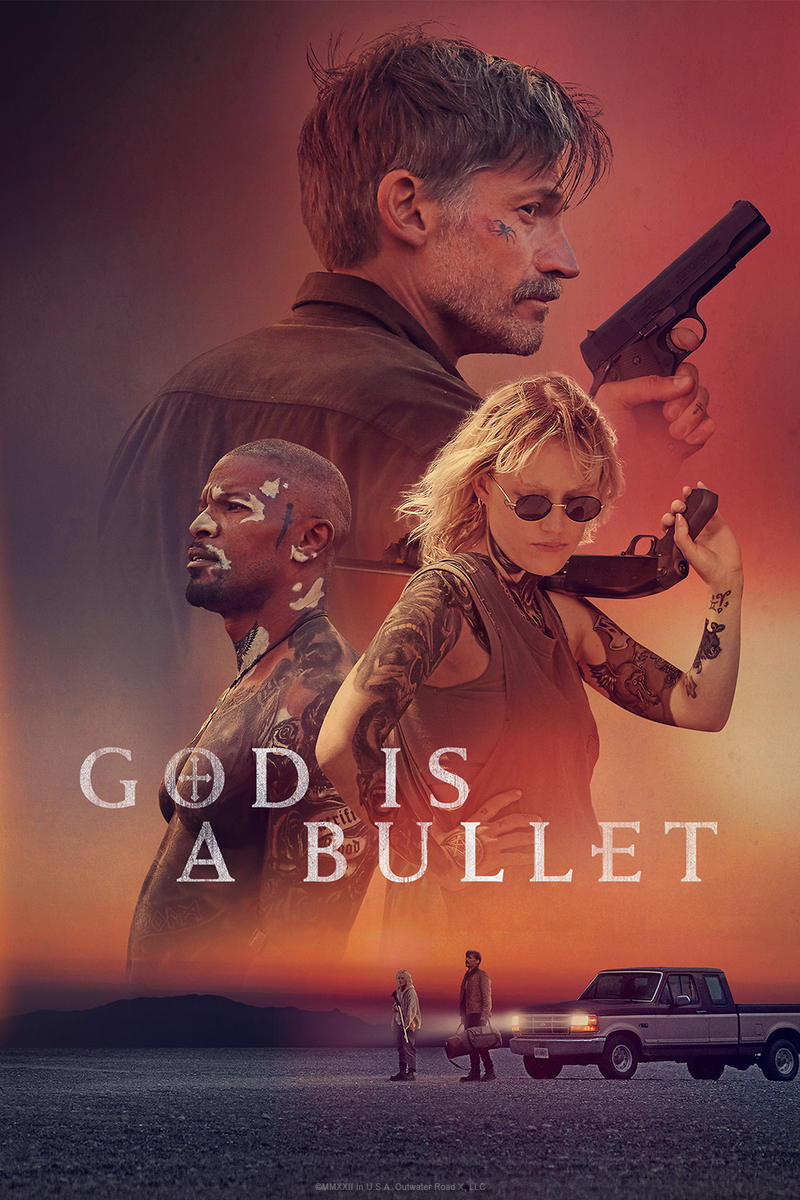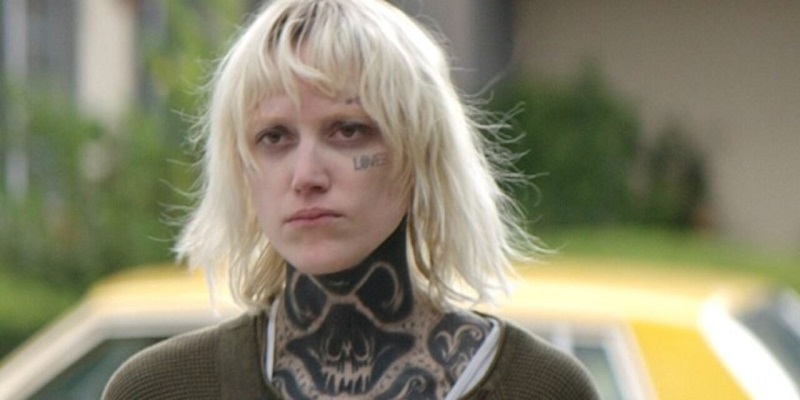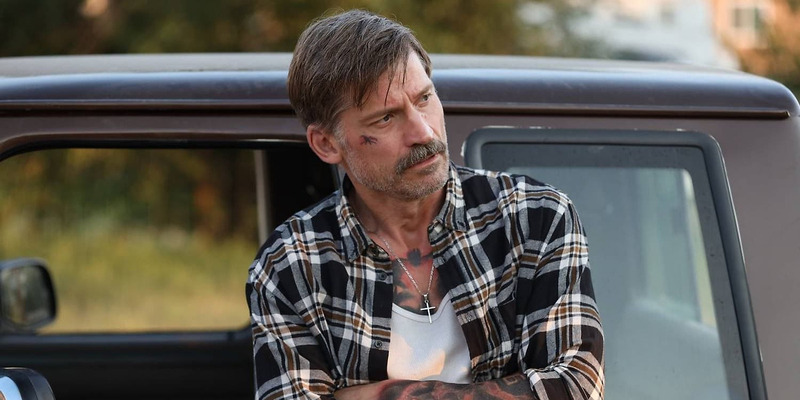
Review by
Eric Hillis
Directed by: Nick Cassavettes
Starring: Nikolaj Coster-Waldau, Maika Monroe, Jamie Foxx, Karl Glusman

God is a Bullet opens with the claim that it's "based on
a true story" and closes with a disclaimer informing the viewer that
what you've just watched actually bears no relation to anything that
occurred in real life. It's indicative of the schizophrenic quality of
writer/director Nick Cassavettes' adaptation of the 1999 book by
"Boston Teran," a pseudonym for what some believe to be a collective of
respected writers having some fun in the paperback world of genre
fiction. Cassavettes can't decide if he's making a gritty, existential
Paul Schrader thriller or a trashy Michael Winner romp. His film falls
flat on its face when it tries to imitate Schrader, whose 1979
Hardcore seems to be the main inspiration here, but is
more successful at replicating the over-the-top reactionary scuzziness
of Winner's films. Schrader is one of the best filmmakers of his
generation while Winner is a hack, so I guess it's no surprise that the
latter is the easier to imitate.

Nikolaj Coster-Waldau is miscast as mild-mannered, God-fearing
small town cop Bob Hightower. We're supposed to buy in to the Danish
hunk as a rural American rube because he's decked out in a Ned Flanders
mustache and square haircut. Bob's world is shattered when a
Manson-esque cult kills his ex-wife and kidnaps his teenage daughter.
With his police department proving inept at tracking down a bunch of
goons whose prominent face tattoos and impractical leather outfits would
make them stand out at a Mad Max cosplay convention, Bob decides to take
things into his own hands.
This sees Bob team up with Case (Maika Monroe), a spunky escapee
from a cult known as "The Left-Handed Path," which she believes is
responsible for the attack. It's the sort of pairing Schrader has fallen
back on several times - the repressed, conservative older man and the
libertine young woman – but in Cassavettes' hands it becomes a clunky
reworking of the classic It Happened One Night "Will they,
won't they?" dynamic as the two form an unlikely attraction.

With Bob forced by Case to get his body and face tattooed (by a
character played by Jamie Foxx and named "The Ferryman," in case
you didn't already get the metaphor) in order to fit in with her
underworld, there's a better version of this film in which Bob begins to
embrace this nihilistic world he's entered. It's the movie Schrader
would likely give us, but perhaps not what you should expect from the
director of The Notebook. It's briefly hinted at here when Bob sells out a female cult member,
leading to her demise, but it never reaches the levels of George C.
Scott in Schrader's Hardcore or his self-directed 1972
revenger Rage.
Bob has more in common with the sort of figures played by Charles
Bronson in the 1970s and '80s. Bronson was uniquely skilled at playing
men who seemed like your average uptight suburbanite until he took his
shirt off to reveal ridiculously toned abs. Coster-Waldau certainly has
the abs but never convinces as a "desk cowboy," as his Sheriff describes
him. This isn't helped by Bob's unconvincingly rapid transition into
John Rambo, stapling laughably gaping knife wounds in his stomach and
surviving a snake bite to the neck.

The over-the-top hero, the sassy young heroine and the
Hills Have Eyes villains would all work if the movie was
content to be the sort of exploitation fare such stereotypes suggest.
But Cassavettes has loftier ambitions, which results in eye-rolling
monologues about faith and some terrible use of rock music in montages
so badly synced with the chosen songs they become the cinematic
equivalent of listening to a DJ who can't beat match. Plenty of
filmmakers have managed to pull off the trick of combining arthouse with
grindhouse, including Cassavettes' own parents, but perhaps the trick is
to have an equal appreciation for both forms.


